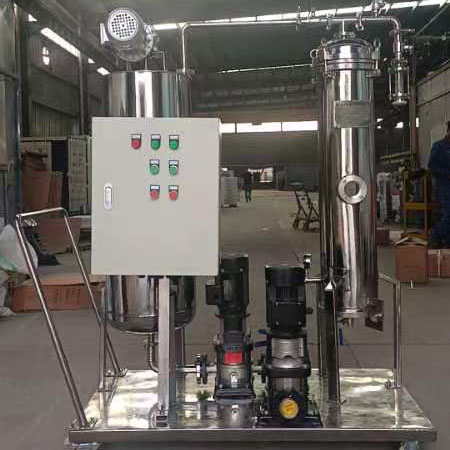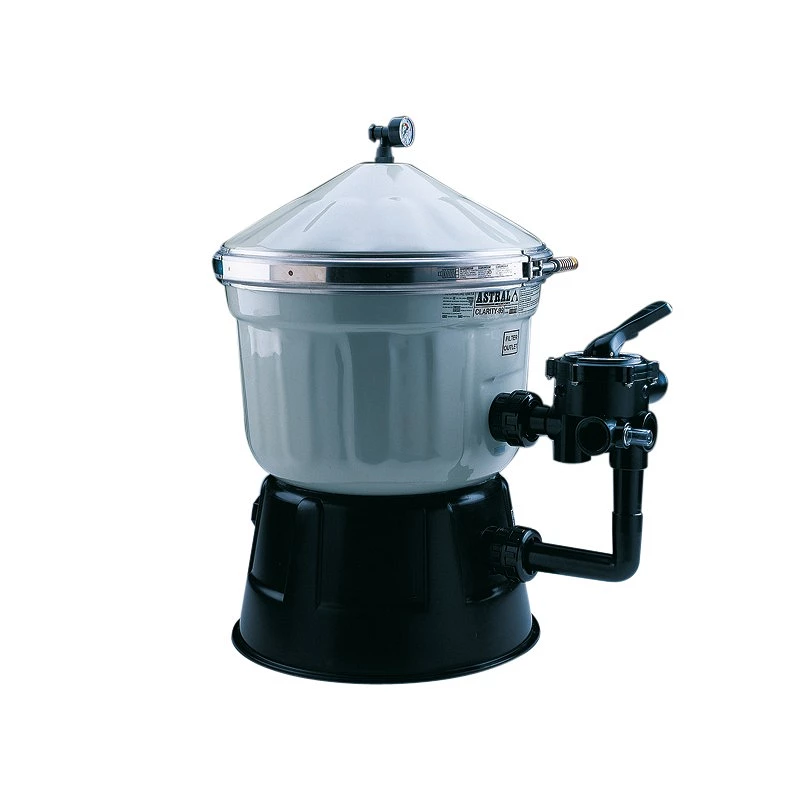Diatomaceous Planet Filtering: A Natural Service for Superior Water Purification

Diatomaceous Earth (DE) filtering system has arised as an engaging method for improving water filtration, using the distinct residential or commercial properties of fossilized diatoms. As problems over water high quality heighten, recognizing the advantages and practical applications of DE filtering system ends up being increasingly pertinent.

What Is Diatomaceous Earth?
Diatomaceous earth (DE) is a naturally occurring, soft, stratified rock that is made up largely of the fossilized remains of small aquatic organisms understood as diatoms. These single-celled algae possess an unique, silica-based cell wall that adds to the distinctive buildings of DE. The rock is usually light and porous, enabling it to absorb numerous materials properly.

As a result of its high porosity and absorbent capability, DE serves numerous applications, including its usage in agriculture, bug control, and, notably, water filtration. The effectiveness of diatomaceous planet in filtering is attributed to its capability to catch and remove contaminations from water, making it an increasingly preferred selection among those looking for natural purification remedies. Its green nature and flexibility even more enhance its appeal throughout different industries.
How Diatomaceous Planet Filtering Functions
The distinct framework of diatomaceous earth (DE) allows it to work as a reliable filtering tool in water purification systems (diatomaceous earth filtering). Made up of the fossilized remains of little, water microorganisms called diatoms, DE has a porous and highly absorbent nature. This detailed framework allows DE to trap contaminations and impurities as water flows via it, effectively getting rid of bits as tiny as 1 micron
When water is passed through a DE filter, the liquid runs into a network of tiny pores that capture suspended solids, bacteria, and various other unwanted products. The filtration process happens as a result of both electrostatic and mechanical communications, where bigger fragments are literally entraped within the DE's matrix, while smaller bits might follow the surface area as a result of charged interactions.
Additionally, DE can be used combined with various other filtering techniques to boost general efficiency. As water remains to stream with the DE layer, it slowly becomes clearer and cleaner, showcasing the medium's ability to improve water top quality without the demand for rough chemicals. This all-natural purification procedure highlights diatomaceous earth's function as a reliable and lasting solution for water purification.
Advantages of Diatomaceous Planet Filtering
Effectiveness in water filtration is significantly enhanced through the usage of diatomaceous planet (DE) filtering system, offering countless advantages that make it a preferred choice for several applications. One of the main benefits of DE filtering system is its capability to get rid of a vast array of contaminants, including microscopic organisms, debris, and even certain chemicals. This capability makes sure that the water cleansed with this approach is not just clean yet likewise safe for consumption.
Furthermore, DE filters have a high circulation rate, which permits quicker filtration contrasted to traditional methods. This characteristic is particularly advantageous for massive procedures such as community water treatment plants or pool. Using DE likewise decreases the requirement for harsh chemical ingredients, advertising an extra eco-friendly strategy to water filtration.
Furthermore, DE filtering systems are reasonably very easy to keep, needing less regular substitute than various other filtering media. The natural origin of diatomaceous planet contributes to its sustainability, making it an eco-conscious option. On the whole, the combination of performance, performance, and ecological advantages positions diatomaceous earth filtering as a leading solution in the realm of water purification.
Comparison With Traditional Water Filters
When evaluating water purification approaches, diatomaceous planet filtering stands out in contrast to standard water filters. Traditional water filters, such as turned on carbon or ceramic filters, largely concentrate on removing pollutants with adsorption or physical barriers. While these approaches work for sure pollutants, they may not catch smaller bits, bacteria, or infections as effectively as diatomaceous planet (DE) filters.
Diatomaceous earth filtering uses the distinct framework of diatomite, made up of tiny, porous fossilized algae. This permits DE filters to catch particles as tiny as 1 micron, providing superior purification capacities. Additionally, DE filters can handle bigger quantities of water without significant stress loss, making them appropriate for both residential and industrial applications.
Furthermore, diatomaceous earth is a sustainable and natural product, presenting less ecological problems contrasted to some artificial filter media. On the other hand, standard filters usually call for regular replacement and disposal, bring about increased waste.
Applications and Utilize Cases
Diatomaceous earth (DE) filtering has a diverse range of applications across different markets as a result of its reliable filtration abilities. One of one of the most noticeable usages of DE is in the food and drink industry, where it offers as a filtering tool for white wine, beer, and juice production. Its permeable structure successfully gets rid of pollutants, making sure a clear and tasty end product.
In the realm of swimming pool maintenance, DE filters are favored for their capability to trap penalty bits, offering superior water clarity contrasted to typical sand filters. Additionally, DE is used in community water treatment facilities, where it helps in the elimination of put on hold solids, bacteria, and other contaminants, adding to safe drinking water.

Beyond water purification, diatomaceous planet discovers applications in the agricultural industry as check this an all-natural pesticide and dirt amendment, promoting much healthier plants while decreasing chemical use. Its absorbent residential properties make it helpful in numerous commercial processes, including oil spill clean-ups and as a filler in construction products. Overall, the versatility of diatomaceous earth filtering placements it as an important service for improving water quality across multiple domains.
Verdict
Diatomaceous planet filtering stands for a efficient and sustainable method for water filtration. Its special buildings enable the capture of tiny contaminations without making use of hazardous chemicals, thus advertising environmental security. The high flow price and low maintenance demands better enhance its allure compared to traditional filtering why not look here methods. As recognition of water high quality issues expands, the adoption of diatomaceous earth filters in various applications is most likely to increase, adding to enhanced public health and wellness and ecological conservation.
Diatomaceous Earth (DE) filtering system has actually arised as an engaging method for boosting water purification, making use of the distinct residential properties of fossilized diatoms. As water continues to flow with the DE layer, it gradually ends up being clearer and cleaner, showcasing the medium's capacity to boost water high quality without the requirement for rough chemicals.Effectiveness in water filtration is substantially boosted with the usage of diatomaceous earth (DE) filtering, using countless benefits that make it a recommended choice for several applications.When examining water purification methods, diatomaceous planet filtering system stands out in comparison to conventional water imp source filters. Conventional water filters, such as turned on carbon or ceramic filters, mainly focus on eliminating contaminants via adsorption or physical obstacles.